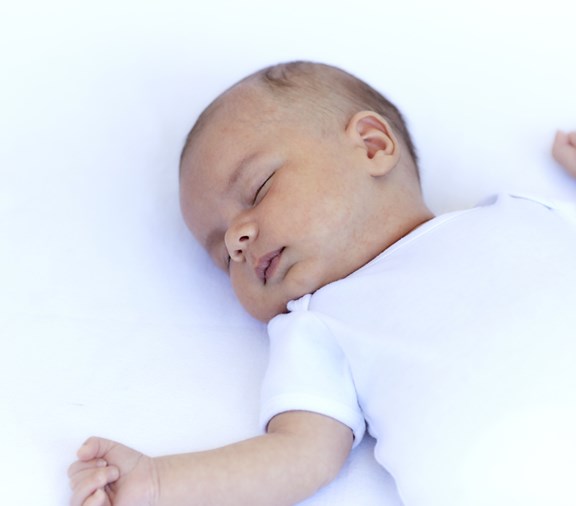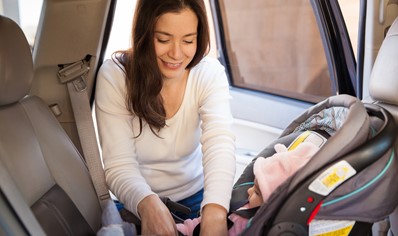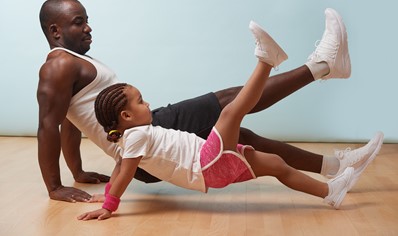
Don’t Sleep with Your Baby. Here’s Why.
August 16, 2023
Sleeping next to your baby may seem natural – but it can be dangerous for the baby.
Every year in the US, about 3,400 babies die from sleep-related causes. Many of these deaths occur while newborns or babies are sleeping with parents or other caregivers.
When you are extra tired from the demands of caring for a baby, it’s easy to fall asleep holding them in your own bed, on a couch, or in your favorite chair. Don’t do it!
Keep your baby safe while they’re sleeping.
Learn more with the safe sleeping tips below. Then, be sure to share this important information with everyone who helps to take care of your baby.
What are reasons babies die during sleep?
Common reasons for sleep-related death are suffocation, strangulation, and sudden unexplained death in infancy (SUDI), previously known as sudden infant death syndrome (SIDS).
- Suffocation means something covers the baby’s face and they cannot breathe. A pillow, an adult’s arm, or a blanket can suffocate a baby during sleep. Babies can also suffocate from getting stuck in between the mattress and the wall or bedframe.
- Strangulation means something wraps around the baby’s neck. A strap, ribbon, or string from a toy, hanging mobile, or piece of clothing can cause accidental strangulation.
- SUDI is an unexplained death caused by an unknown medical issue.
Where should my baby sleep?
Babies should sleep in their own cribs or bassinets, near your bed.
The baby’s mattress should be firm and flat. Do not use tilted or inclined surfaces.
Use a well-fitted sheet that will stay in place.
Should I remove all items from my baby’s crib or bassinet?
Yes. Your newborn or baby could be suffocated or strangled by items in their crib.
Remove all objects, such as:
- Blankets
- Pillows
- Bumper pads
- Crib liners
- Sitting devices
- Stuffed animals
- Other toys
To learn more about setting up your baby’s crib or bassinet, visit the Safe to Sleep website.
Where should my baby NEVER sleep?
Do not allow newborns or babies to sleep on or in:
- Couches
- Armchairs
- Swings
- Baby seats
- Car safety seats (except when in a car)
Should my baby sleep on their back?
Yes. Remember the phrase, “back is best.”
What else can I do to protect my newborn or baby?
If you can, breastfeed your baby for their first six months of life.
Watch this short video to learn how breastfeeding helps your baby with safer sleep.
Need answers about childcare? Call the free 24-hour Nurse Line
Have questions about pregnancy, childbirth, or newborn care?
Are you feeling dizzy or weak—and worried you have an infection?
Get professional help. Call the 24-Hour Nurse Line.
There is no cost to you for this Parkland Community Health Plan service.
STAR Medicaid 1-888-667-7890
CHIP/CHIP Perinate 1-800-357-3162
For questions about postpartum depression, call your health plan’s toll-free behavioral health line.
STAR or CHIP: 1-844-603-1134



